Events / Exhibitions
Focus
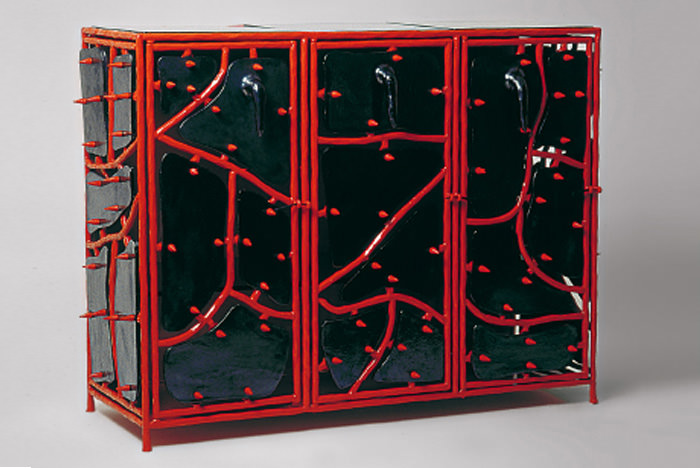
Focus on Garouste & Mattia Bonetti
Mouvements Modernes
“If some of their creations clearly stand on one side of the world, one of opulence, most, however, perfectly illustrate the ambiguity in which their charms nestle.
Roughness – from terracotta plates and rusted (or darkened) sheet metal – and overall sophistication clash in this small “Collerette” cabinet”.
Ostentation, that some could describe as flashy, and dream, of a scholar, of an lndia seen through Venice in this “lndia” side table, cream lacquered and gilt bronze. Strong – or even violent – decorative effect and weakness of use of the unmanageable “Barbare” chair, or, on the contrary, func
tionalism versus ‘shape effect’ with the ashtray or the Ricard decanter.
One could endlessly multiply these ambiguities, inderteminations and absences of bias they have fun with.”
Climax credo – Pierre Staudenmeyer sur Garouste & Bonetti
Dis Voir Editions, Paris 1998
French decorators and designers, the duo Elizabeth Garouste (born 1946) and Mattia Bonetti (born in 1952), have been working together since 1980.Garouste and Bonetti’s collaboration began in 1980 when they worked jointly on the decor of the Privilège club, which was part of Le Palace, Paris’ most celebrated night club at the time.
lndeed Gérard Garouste had been commissioned a set of decorative panels for the club and turned to his wife and Mattia Bonetti for help in designing the space and decorating it.
Together they produced a theatrical and magical set up, complete with wall paintings , plaster masks, columns draped with stucco and padded upholstery in the spirit of architect and decorator Emilio Terry (1890-1969).
The result was such a success that the two designers decided to team up; together they developed a style markedly different from the sleek lines of the design of the time. A long period of collaborations ensued, with monumental projects such as the interior design of Bernard Picasso’s Boisgeloup château and Christian Lacroix’s Haute Couture headquarters.
Their production known as “Les Nouveaux Barbares” was championed by Pierre Staudenmeyer’s Neotù gallery. Garouste and Bonetti deliberately ignored functionalism and standardisation, favouring primitivism and an antiquated form of elegance instead. In 1991 Grand Hornu Images hosted a retrospective show entitled Elisabeth Garouste & Mattia Bonetti / 1981-2001 which covered twenty years of collaboration. In 2002 the pair separated.
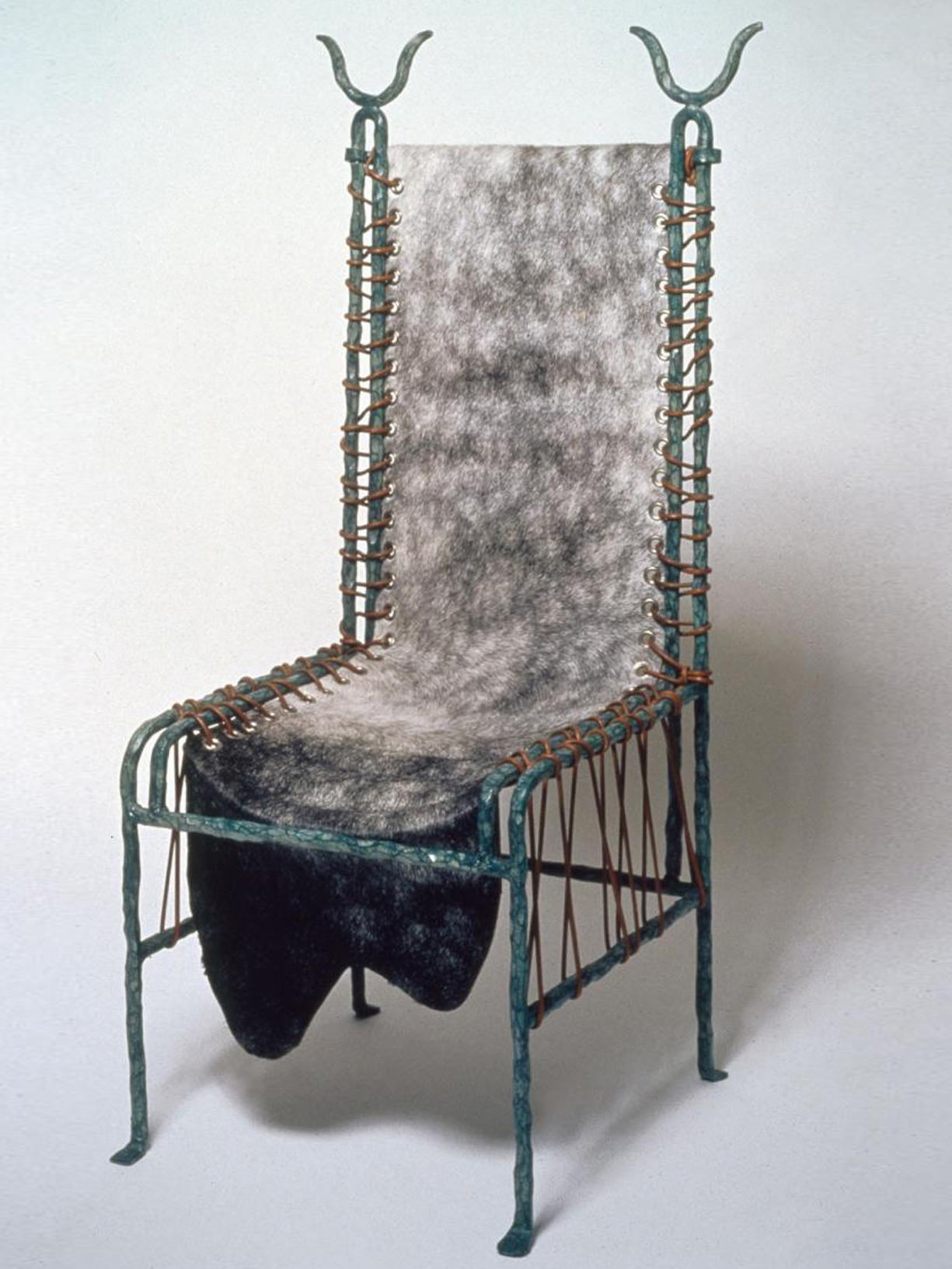
Garouste & Bonetti Barbare , 1981 Chaise Fer forgé, peau de poulain Edition Neotu
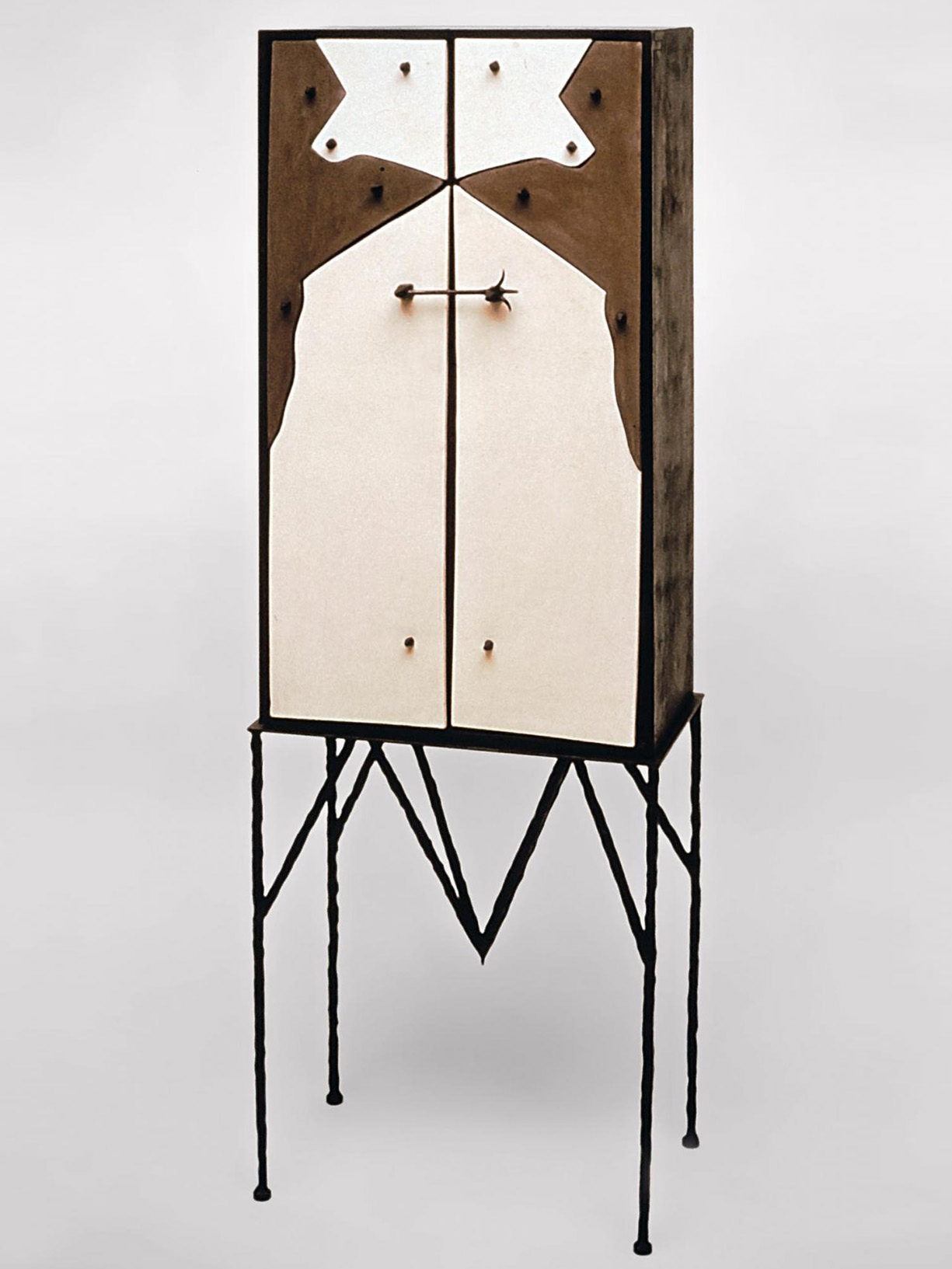
Garouste & Bonetti Cabinet Collerette , 1986 Fer et terre cuite
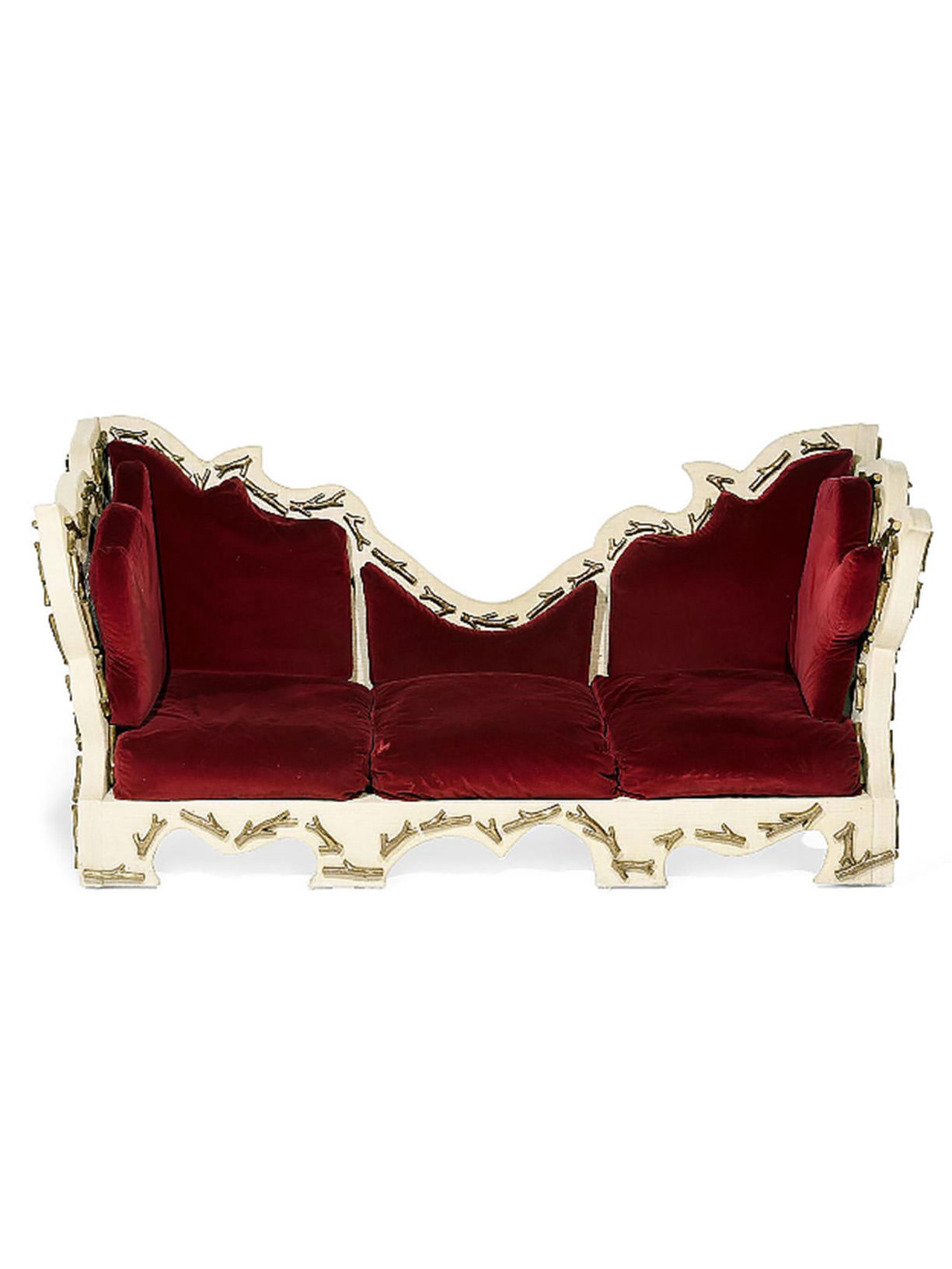
Garouste & Bonetti Canapé Maharajah , 1991 Velour, lin et bronze doré Edition Neotu

Garouste & Bonetti Cabinet de Sèvres , 1989 Bois laqué et porcelaine de Sèvres Edition Neotu
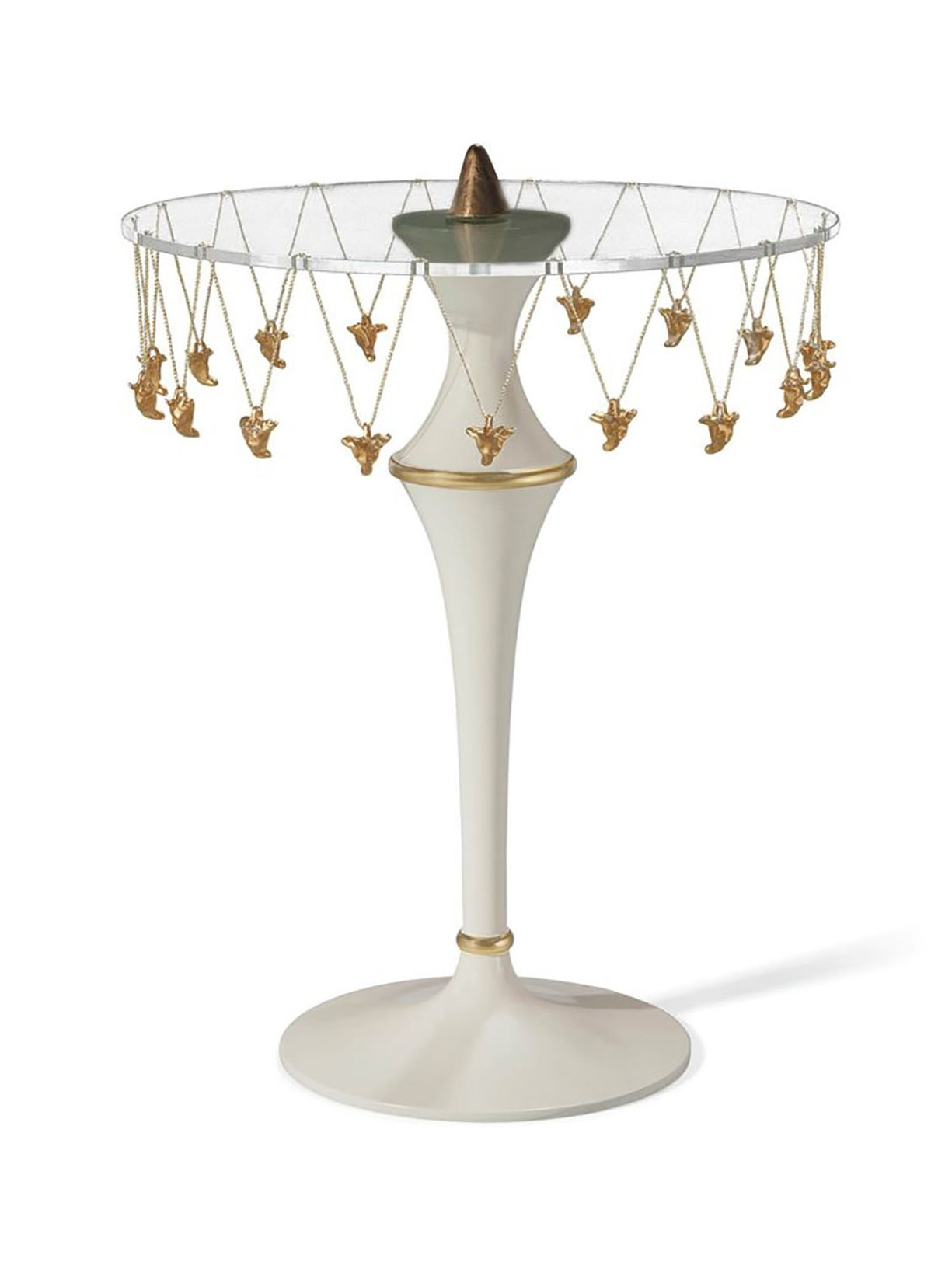
Garouste & Bonetti Inde , 1986 Guéridon Bois laqué, bronze doré et verre Edition Neotu
